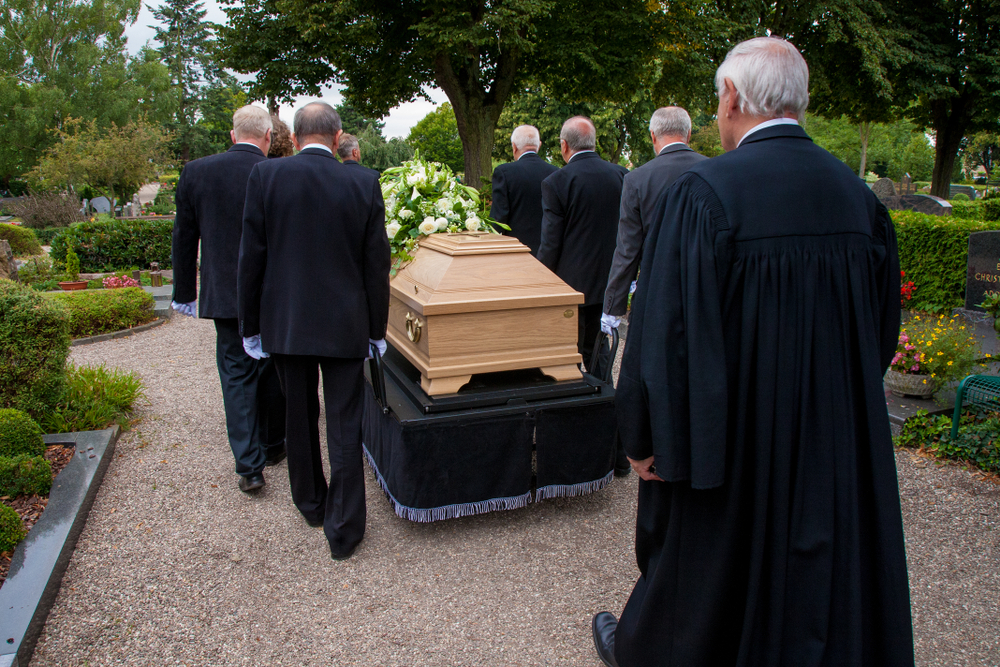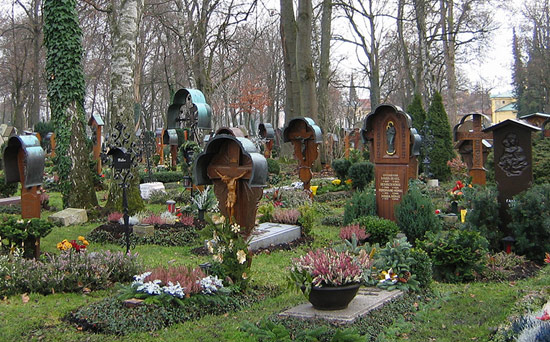Life Stages: Death
Cultural Traditions
Death rituals in Germany mostly reflect association with religious groups rather than beliefs of the culture as a whole. In the event of death, the family doctor or the hospital where the person died must always issue a death certificate. Afterwards, funeral homes make most of the burial arrangements. Catholics and Protestants both favor burial as the means of disposing of a corpse, so in Germany, residents traditionally bury their dead in coffins in cemeteries, and a church performs funeral rites. The non-religious may hold a memorial service instead, in which case practices vary depending on the beliefs and wishes of the deceased or survivors.
A Growing Practice
Although burial remains common, an increasing number of funerals—between 40 and 50 percent—involve cremation instead. The lesser expense of cremation partly contributes to its gain in popularity, as Germany keeps funeral costs notoriously high. In less religious areas of Germany, people increasingly opt to bury the dead in an unmarked grave, while in more religious areas, mourners continue the custom of regularly tending the grave of a loved one. Although in many parts of Germany, people’s religious beliefs prove nominal, many still observe the funeral rites of the Church, and many share common Christian beliefs in himmel (heaven) and hölle (hell). The increasing number of atheists and agnostics in the country may not believe in afterlife.
Copyright © 1993—2025 World Trade Press. All rights reserved.

 Germany
Germany 
